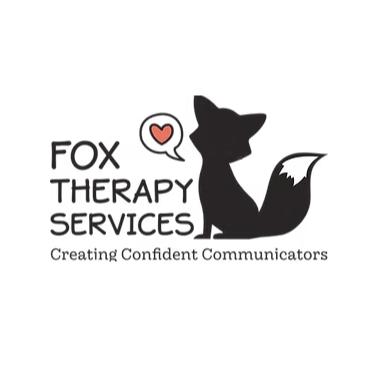- Landline
- (818) 532-7884
- clientcare@foxtherapyservices.com
- foxtherapyservices
- Website
- www.foxtherapyservices.com
Description
Fox Therapy Services provides ABA, speech, occupational, feeding, and myofunctional therapy for children. Our team of experienced clinicians uses evidence-based, individualized approaches to support meaningful progress in behavior, communication, motor skills, and daily living. We partner closely with families to ensure therapy is engaging, effective, and tailored to each child’s unique needs. Parent collaboration and education are central to our model—we believe real progress happens when families feel supported and empowered. At Fox, sessions are fun, goal-driven, and built around each child’s strengths. We’re honored to support your family and be part of your journey!
Keywords Therapy Services, Speech Therapy, ABA Therapy, Occupational Therapy, Feeding & Myofunctional Therapy.
Reviews
Opening hours
Bios
-

Jessie Blois, M.S., CCC-SLP, QOM
Founder | Chief Clinical Officer | Speech Therapist | Orofacial MyologistI am a speech therapist and qualified orofacial myologist with over 15 years of experience treating individuals of all ages. I am also a wife and a mother of two young children, so I know what it's like to want the best for your kids. Throughout my career, I have pursued advanced trainings, courses, and programs to help my clients breathe, speak, sleep, and eat better. I am a life-long learner who is driven to use the most effective and evidence-based treatments in my practice. For my commitment to ongoing professional development, I have even been presented with the ASHA Continuing Education Board's ACE Award! I earned my master's degree in Communication Sciences and Disorders, with an emphasis in Speech-Language Pathology, from California State University, Chico. I hold my Certificate of Clinical Competence with the American Speech-Language-Hearing Association (ASHA), and I am licensed with the Speech-Language Pathology, Audiology and Hearing Aid Dispensers Board of California. Outside of work, I absolutely love going to my children's activities! Watching them do what they love brings me so much joy. I also enjoy walking, entertaining, reading, and spending time with friends and family whenever I get the chance. I look forward to getting to know you and your family!
Education:
Certifications:
-

Briana Raynor, M.S., CCC-SLP
Clinical Director | Speech-Language PathologistI am a California-licensed and board-certified Speech-Language Pathologist with a passion for helping children communicate, connect, and thrive. Since earning my master's degree in Communication Sciences and Disorders in 2016, I've worked primarily in private practice settings, supporting pediatric clients and their families through play-based, evidence- informed therapy rooted in a family-centered approach. I have pursued specialized training in programs such as TalkTools® Level 1, PROMPT, the Early Start Denver Model (ESDM), Hanen's More Than Words®, and UCLA's PEERS® program for social skills. These tools help me tailor treatment to each child's unique needs, and I'm deeply committed to making therapy both effective and fun. I believe that meaningful progress happens when caregivers are engaged partners in the process, and that learning through play fosters joy, confidence, and connection. In my current role, I support and supervise a team of SLPAs, Clinical Fellows (CFs), and student interns. I love mentoring the next generation of therapists and fostering a collaborative, supportive environment for growth-for both our team and the families we serve. When I'm not in the clinic, you'll find me enjoying time with my husband and daughter.
Education:
Certifications:
-

Sierra Srivats, M.A., BCBA
Director of ABA Services | Board-Certified Behavior AnalystI am a Board-Certified Behavior Analyst (BCBA) with a passion for helping children grow into the best versions of themselves through individualized, evidence-based care. My path in the field began in 2016 as a behavior therapist while studying psychology and education at the University of California, Berkeley. Since then, I've held a variety of clinical and leadership roles in the field of ABA, ultimately discovering my calling in combining therapeutic work with broader program and organizational development. I earned my Master of Arts in Special Education with a focus on Applied Behavior Analysis from Arizona State University and maintain national certification as a BCBA. Becoming a BCBA has allowed me to integrate these strengths in ways that foster collaboration across teams, create effective therapy programs, and ensure that families feel supported every step of the way. My focus is not only on delivering individualized care but also on continuously refining and improving the systems that support both clients and staff. Whether it's by developing new training protocols, contributing to program innovations, or advocating for best practices, I strive to contribute meaningfully to both the children and the field of ABA as a whole. I have experience supporting children of all ages and am committed to designing programs that are collaborative, compassionate, and truly effective. I believe families are at the heart of a child's progress and work hard to ensure they feel informed, supported, and empowered every step of the way. I am dedicated to lifelong learning and staying current with best practices in the field. Outside of work, I enjoy spending time with my husband, daughter, and our two dogs. Whether it's going on family adventures, traveling, arranging flowers, entertaining, or just being outdoors, I always value time spent with my loved ones. I look forward to connecting with you and supporting your child as they grow, learn, and succeed!
Education:
Categories
Doctors & Clinics(818)532-7884 (818)-532-7884 +18185327884
Map 31822 Village Center Road
Loading map...



